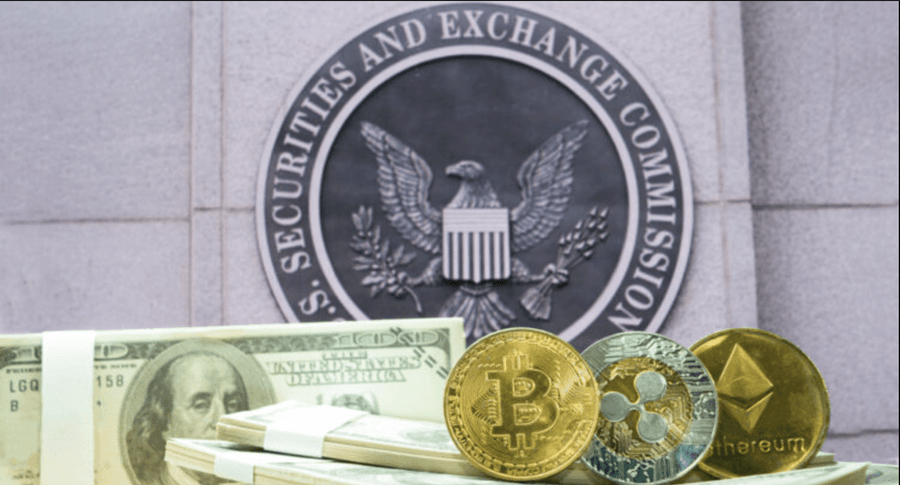At the end of March, it became known that SEC sent a Wells notice to Coinbase out of the blue. This means Coinbase is going to face an investigation by SEC due to issuing unregistered crypto securities. A day later, SEC released a lengthy official warning that urges crypto investors to be cautious. In the context of the recent witch hunt, or rather, crypto hunt, executed by the eager beaver U.S. officials, the warning is a bit bothersome. Let’s dig deeper into the existing regulations to know what to expect when trading crypto and not get in trouble.
Read also: SEC Sues Do Kwon and Terraform Labs for Fraud
Federal securities statute compliance
The basic Statutes of SEC were drafted in the middle of 20th century and include the Securities Act of 1933, the Securities Exchange Act of 1934, and the Investment Company Act of 1940. Newer documents according to which SEC operates were drafted in 2002 and 2010. SEC refers to these documents in their oversight of operations.
Some properties of crypto make it overlap with SEC’s definition of securities, making crypto subject to oversight by the organization. This is exactly what happened to Coinbase, which allegedly listed some securities that have not been registered.
What is the SEC?
SEC stands for the U.S. Securities and Exchange Commission. The organization’s role is to ensure no shady business is going on in the field of securities and exchange, or in their own words, “facilitate fair trade, capital formation, and trustworthy market environment.”
Read also: Tether market cap blasts to the moon, SEC crackdown hurts stablecoin rivals
What investors should know before investing in crypto
Here’s an overview of the Investor Alert published on March 23rd. It will help you get a quick grasp of the idea without having to read the entire thing.
“Those offering crypto asset investments or services may not be complying with applicable law, including federal securities laws”
The compliance is ensured by registration of assets with SEC. The procedure includes a complete financial statement that is carried out by an audit firm in accordance with best practices of the Public Company Accounting Oversight Board (PCAOB). SEC’s concern is that some platforms may have cut corners in terms of registration of the securities and stocks they issue.
SEC also outlines that crypto trading platforms often use Proof of Reserves as a substitute for a financial statement. Here, the main issue is that proof of reserves does not always reflect the real deal. In simpler terms, by no means does a published proof of reserves guarantee that the platform has those reserves. You may want to be extra cautious when investing in cryptocurrency on a platform that has a questionable proof of reserves, its financial statements are not available, and it draws blank on its guarantees. The platform may become insolvent before you know it, so make sure you will get your money back before you have to face the music over your poor investment choices.
“Investments in crypto asset securities can be exceptionally risky and are often volatile”
Crypto exchange prices may be extremely dynamic, and trading crypto involves a certain amount of risk, because no matter how good you are at analysis and prediction, it is never fool proof. SEC highlights that several crypto trading platforms have recently become insolvent, which is an additional risk as the market is now in crisis. Very nice of them to note that, especially considering that some of them went down because of the actions taken by governments.
Additional trouble may come from the regulations and market environment in the country of an investor. Local governments may restrict or even ban crypto trading completely, which means no matter how reliable, secure and reputable the trading platform is, if you are not legally allowed to trade crypto in your country, you’re on your own.
“Fraudsters continue to exploit the rising popularity of crypto assets to lure retail investors into scams, often leading to devastating losses”
SEC states that the three most popular types of scam in the crypto world are bogus coins, Ponzi schemes, and theft. Most crypto fraud happens on social media, where scammers provide fake testimonials luring innocent people into a Ponzi scheme, in which the previous investor gets the money of the following investor.
SEC also highlights that ads where celebrities are featured are not a credible source of information. This is pretty obvious though; we wouldn’t think Beyoncé earned her fortune by purchasing coin from a shady platform with no reputation because Jay-Z had financial vision and encouraged her. The point is, use your head and don’t trust social media with your finances.
“Having an investing plan, as well as understanding your risk tolerance and time horizon, can be critical to your investing success”
Here, SEC gives a couple of basic pieces of advice. First of all, they recommend paying the debts with high interest first, because if you won’t earn nothin’ if the interest you pay levels with your profit. Then, SEC suggests following an investment plan, not impulsive decisions. This is generally a good piece of advice for anything in your life; don’t get married impulsively, don’t buy a dog, don’t binge-eat before you go to sleep, yada-yada. Don’t spend your paycheck on coin if you are not sure you got money for food set aside.
Another suggestion is not to put all eggs in one basket. Diversify your investments to make sure that even if one deal is lost, you have other deals that are potentially profitable. Finally, know what you are buying. Understand the benefits and the risks of every platform and every trade you are involved in. This way, you will be in the zone and your profit will only increase.



